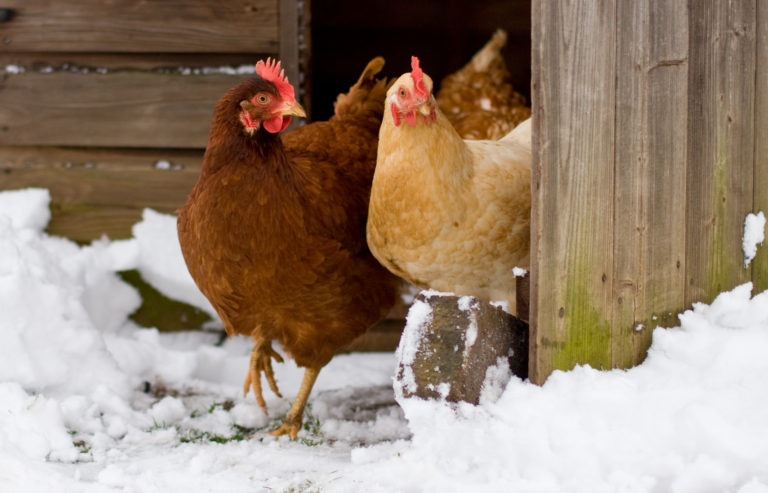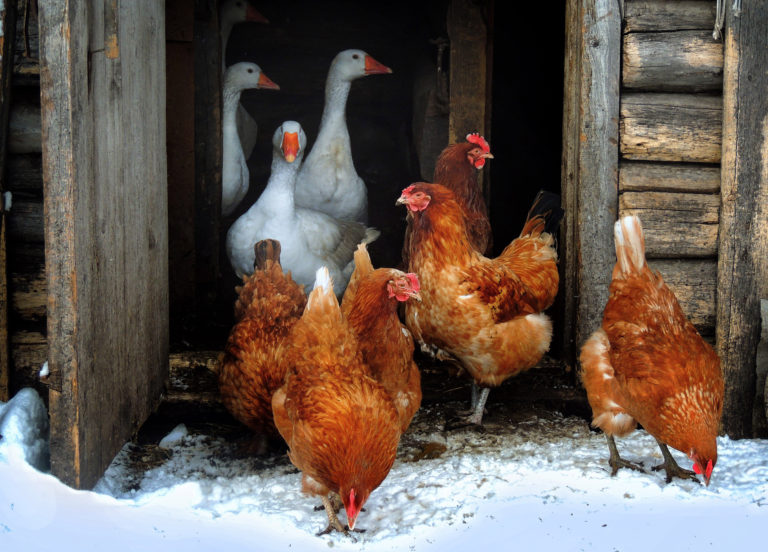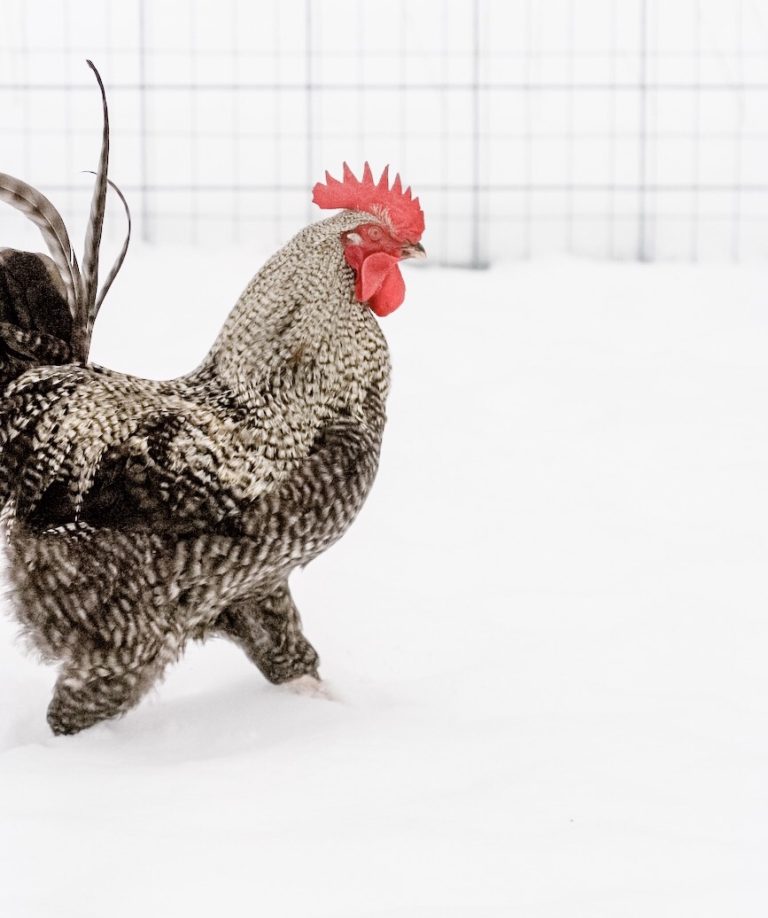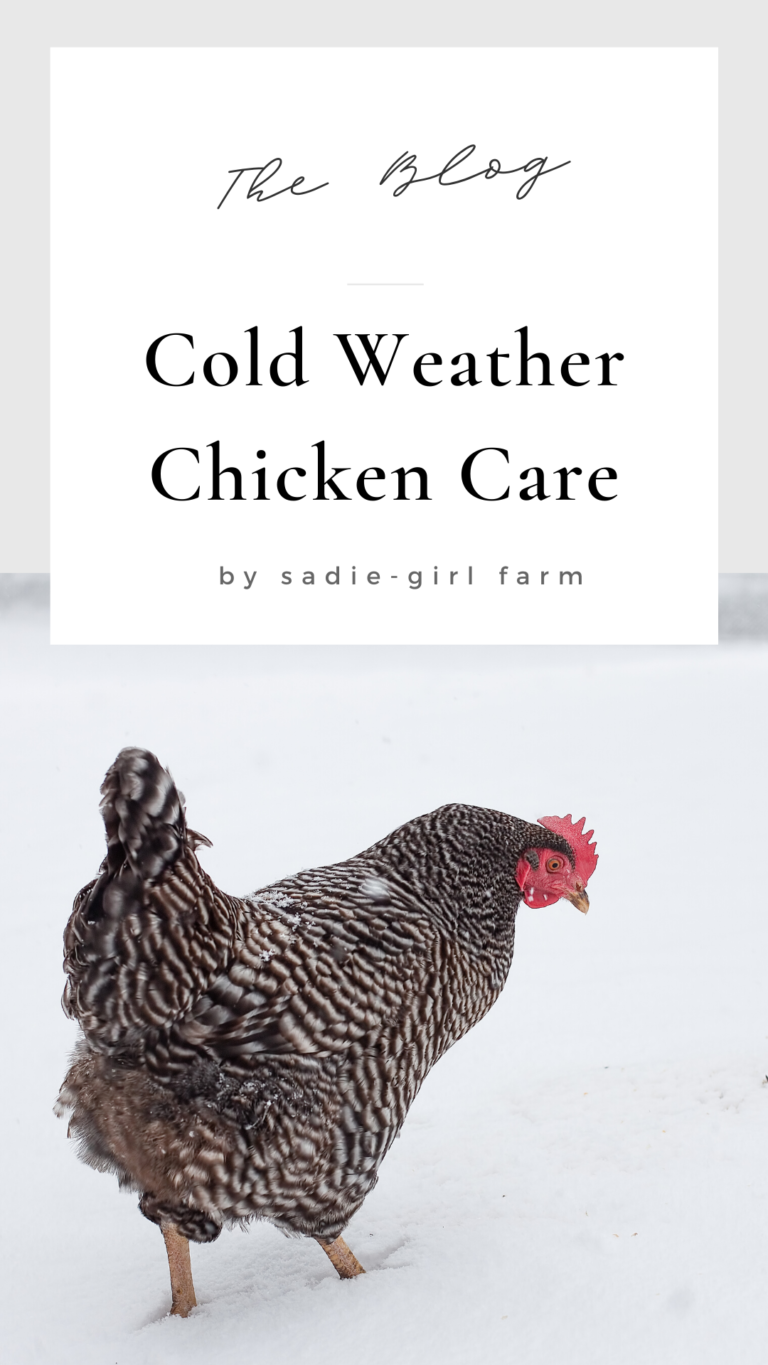Caring for Your Chickens in the Winter
Baby it’s cold outside! At least it is here in the mountains of Western North Carolina. I don’t know about you, but I am a big baby when it comes to winter and the cold. You can find me curled up next to my woodstove, with my wool socks, fuzzy sweater, and a cup of something hot!
I also tend to “overdress” my son when he goes out to play, to the point of restricting his movements in his snow suit!
I have a tendency to want to do this to my animals too. But I have learned over the years, that this tendency of mine is not helpful for our chickens.

Chickens are actually very well adapted to the cold. Do you know what is inside that down coat that you wear? Yep, you got it… feathers! Turns out chickens grow their own down jacket! How cool is that! (I am jealous)
Now, I get a lot of questions from newbie chicken mamas about whether or not to put a heat source in their coops for the winter. I want to tell you, fight that urge. And here’s why.
A heat lamp (or heat panel, etc) is actually COUNTER-productive when it comes to keeping your chickies warm. You see, a chicken will grow a “coat” to the extent that their environments demand it. If the chickens body feels cold, it will trigger their bodies to “beef up” to stay warmer.
If we are artificially heating their coop, they will not grow as thick a layer of feathers (especially that crucial “under coat” of downy feathers) in response to their “warmer” environment. Then, when they want to go outside, they will freeze!
It is always best to let their bodies adapt to the actual climate and put on as much fluff as they need to, in order to stay warm.

Another thing that is triggered when the chickens begin to feel cold, is their body will conserve energy and put on a layer of fat, which is naturally insulating. Not so if we are artificially heating their indoor space.
Here are some tips and tricks that I like to do in order for my chickens to be comfortable and healthy all winter long.
Firstly, I add a bit of cracked corn to their diet, especially right before they roost for the night. Corn is especially high in fat (calories) and this added calorie boost right before bedtime (as night is the coldest time) gives them something for their bodies to metabolize all night long and add those extra important calories to burn in order to stay warm.
However, corn is like a treat, and so should be given in moderation. I like to give my girls (and guys) their main layer pellet ration in the morning, and then give them about ¼ as much corn in the late afternoon as a snack. So for example, if you are feeding your chickens 4 cups of pellets in the morning (a good amount for 7-8 chickens), then you would give them 1 cup of cracked corn just before they roost at night. This works really well for some extra body heat produced from burning those extra calories.
Another trick, is to make your roosting bars flat. You can do this by using a 2×4 as a roosting bar, with the widest part laying flat, so the chickens sit on top of that flat (4 inch) side. This allows the chickies to hunker down and completely cover their legs and toes with their warm belly feathers, keeping that exposed skin extra toasty overnight.

Some of my roosters need a little extra care in the very cold nights (20s and below)… especially those breeds that have a very large, exposed comb (ie: our Marans boys). The combs and wattles of roosters have a lot of blood vessels very close to the surface, and of course they do not have insulating feathers to protect them.
Sometimes I will see a rooster sleeping with his head tucked under a wing (very smart!) but some of them need a little extra support. My “rooster-hack” is to coat his comb and wattles in Vaseline, every couple of days.
This keeps them from getting frost-bite as they tend to do on the coldest nights. The easiest time to do this is after your rooster has roosted for the night. They are most docile during this time. I like to wear a little head lamp and bring a helper out to the coop with me. One person holds Mr. Man, and the other person can give him a little massage with some Vaseline.
Frost-bite problem solved!

The last bits of advice I have for lovingly caring for your chickens in the colder months, is to make sure they always have fresh, unfrozen water during the day (no need for water at night, as they are roosting and not drinking during this time).
You can buy a heated chicken waterer to plug in for them, or simply visit their pen at least twice a day with fresh water.
And please make sure they have a secure, dry coop to get out of the snow and wind. They will snuggle a little closer on their roosting bars and share their body heat to comfortably sleep in a cuddle puddle of chicken fluff!
So no matter how cold and uncomfortable YOU might be during the winter, your chickens are just fine! Go buy yourself some cracked corn, some Vaseline, and a heated waterer, and you are all set to see your chickens comfortably through to warmer spring days!
